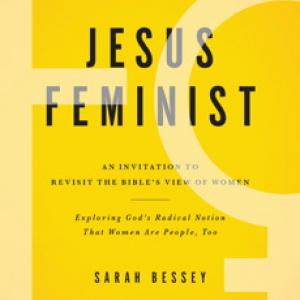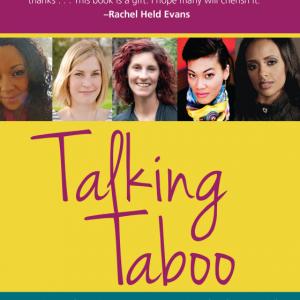
In years past, Jamie has been a hotel housekeeper, a graveyard shift donut fryer, and a welfare recipient, as well as an attorney, White House intern, and an elected official. More recently, Jamie has ghostwritten two books, written for several devotionals, and is a contributing writer for various print and online publications. She has also worked for or volunteered with at-risk youth and their families since 1995, both through direct services and advocacy efforts.
Jamie is currently working on her Master of Divinity with an emphasis in Christian Ethics at Fuller Theological Seminary. Previously, Jamie graduated magna cum laude from Texas Tech University where she majored in both English and Political Science, and received her law degree from UC Berkeley School of Law (Boalt Hall). She practiced dependency law for several years before opening her own law office, where she represented low-income women in domestic violence and family law cases. Now a full-time writer and editor, Jamie’s background as a public interest attorney serves her well as she writes about issues of poverty, gender equality, and social and juvenile justice, among other things.
Jamie has four children and is married to Andy, who is the campaigns director for an interfaith non-profit in Washington, DC. Jamie is a member of the Redbud Writers Guild and the Religion Newswriters Association, as well as the Society of Children’s Book Writers and Illustrators. Jamie is currently working on her first full-length book, The Telling Ground. She blogs at http://jamiecallowayhanauer.com, and you can connect with her on Facebook or on Twitter @JamieHanauer.
Posts By This Author
'Embrace' in a Time of Division

Image via Rawpixel.com/Shutterstock.com
And that’s OK. God did not call them, and does not call us, to comfort. Instead, God calls us to hard work and hard places. Our deliverance does not come when God releases us from those places of division, but when we lean into them, fully accepting why we are there — not to share God with a godless people, but to learn and act on the essential lesson that we are all God’s people.
What Steinem and Albright Get Wrong About Today's Feminists

Image via Volt Collection/Shutterstock.com
Longtime proponents of women’s rights Gloria Steinem and Madeline Albright have experienced some resurgence in the media as of late, but not for defending women’s rights.
Instead, they’ve made headlines for what many are calling anti-feminist views.
Amy Schumer’s Feminism: And Then What?
Is the creation of bro-culture women really the hope of today’s semi-wave of feminism?
Schumer’s strong, emphatic, and well-intended words once again have reduced the feminist cause to the act of sex and a woman’s appearance. She rails against sexual restrictions on women, male sexual dominance, and that weight and beauty define a woman’s worth, all worthwhile topics. But in this extremely powerful and culturally influential speech, I wonder: where is any mention of actual equality?
Where is the Hope in Charleston?
Last night while attending Sojourners’ annual conference, The Summit, I heard from Senator Elizabeth Warren, Jim Wallis, C.T. Vivian, and so many other legends in their fields. Afterwards, I stood in a small circle with others, discussing faith, justice, and reconciliation. I was the lone white face in my group of five; the other four were African-American, faith- and thought-leaders all.
One person, the only man in the group, referenced white supremacy. My ears perked up and I wondered, “Is that really a large part of the issue anymore?” I waited for a break in conversation so I could ask, “Aren’t we dealing more with subtle, insidious, and implicit biases these days?”
I never got the chance to ask. This morning at 5:00 a.m. when I picked up my phone to hit snooze, I saw an NPR alert: nine dead. I knew without question that those nine were black. Turing on CNN confirmed it, and I cried. No one had yet said the gunman was a white supremacist, but what else could he be? Who other than someone who feels his life supreme could take the lives of nine others, cause such aching disbelief and sorrow to their friends and family, and bring such hot pain to those around the nation who, like me, woke to tears and rage and confusion and heartache?
A Primer on Fast Track Trade Authority for People of Faith
t’s also one of the most divisive political issues on the Hill right now. Here’s why: The notion of "fast tracking" trade deals with almost no congressional oversight has led to the creation of odd alliances — putting the Democrats and Tea Party in one camp (against), and the Republicans and Obama Administration (for) in another. Pro-business Republicans are long time supporters of free trade, while members of the Tea Party are against most anything that would allow the President to usurp legislative authority. As for Democrats, they argue that the TPP would allow multinational corporations to undermine labor safeguards, civil rights, environmental protection and healthcare, and derail urgent efforts at fighting climate change. Organizations typically aligned with President Obama are against him here: labor unions, environmental groups, and even traditionally non-political groups have fought hard against Fast Track and the TPP.
Indeed, the potential harm from the trade deal seems to leave few interest groups untouched. To provide just a few examples, Doctors Without Borders has called the TPP the "worst trade deal ever," claiming that it will cause millions to lose access to life-saving medicines; left-leaning Global Exchange has pointed to the increasing number of sweatshops such a framework would lead to; and the digital rights organization Electronic Frontier Foundation has expressed its belief that the TPP would put overly restrictive controls on the internet. And we’ve already seen our political leaders weaken standards for protection against human trafficking and child labor should the trade deal move forward.
These are all compelling arguments, and they are ones faith groups are making as well.
It's About Time
On Feb. 8, civil rights attorneys sued the city of Ferguson, Mo ., over the practice of jailing people for failure to pay fines for traffic tickets and other minor, non-criminal offenses.
And to this I say: It’s about time.
Growing up with an attorney father — a “yellow dog Democrat” one at that — who often took on poor clients in return for yard work and other non-cash payments, I heard early and often about the unfair — and illegal — practice of debtors’ prison. A poor person could not be jailed for failure to pay a fine, my father told me. I trusted his words were true.
So imagine my surprise when at the age of 18, I was arrested for unpaid traffic fines.
At that time I was a stay-at-home mom, trapped in a too-early marriage I would one day leave. My son was probably 6 months old. When the knock came at my door and I saw a police officer standing outside, I didn’t hesitate to answer.
The officer confirmed my identity and told me I was under arrest for failure to pay traffic tickets I had received for driving an unregistered vehicle.
I know that I should have paid the registration. Once ticketed, I know I should have worked out a payment plan. I know I should have taken responsibility for my illegal actions.
But I was young, inexperienced with the system, and very, very poor. Too poor to keep up with even the most modest of payment plans.
As the World Turns
Some die for choosing, others for not choosing. But they all die because they are women. Rogers was mentally ill, and there is debate about whether it was his illness or a misogynistic culture that caused his rampage. For Farzana’s family, and for the 1000 Pakistani girls and women who die each year in the name of honor, there is no question.
Finding Hope in 'The Locust Effect'
Despite our best efforts, we’ve somehow missed it.
Even in the midst of our generous financial donations, volunteer hours, mission trips, and letter writing, we’ve failed to see what should have been glaringly obvious: the global poor lack the most basic ingredient for forward progression — personal security.
In their recently released book, The Locust Effect, Gary Haugen (founder of the International Justice Mission), and Victor Boutros (federal prosecutor with the U.S. Department of Justice) convincingly argue that all our best work to eradicate poverty — even while worthwhile, helpful, and well-intended — is for naught unless we concurrently address the epidemic of violence and fear facing the poor in the developing world. They write:
"...the forces of predatory violence will not simply go away... On the contrary, if the forces of violence are not restrained, it is the hope of the poor that will just keep going away...and there is nothing that our programs for feeding, teaching, housing, employing, and empowering the poor will be able to do about it."
Is Religion the 'Biggest Problem' Facing Feminism Today?
Earlier this week, feminist Gloria Steinem said that religion is the “biggest problem” facing feminism today.
Steinem made this assertion in response to a town-hall style question she was asked during an interview with Jennifer Aniston at the MAKERS Conference. The MAKERS Conference was born of the PBS documentary, “MAKERS: Women Who Make America,” and was held to develop an “action plan to define the agenda for women in the 21st century.”
Steinem was asked, “What do you think the biggest problem with feminism today is?” to which she replied, “What we don’t talk about enough is religion. I think that spirituality is one thing. But religion is just politics in the sky. I think we really have to talk about it. Because it gains power from silence.”
Year of the Woman
The year 2013 may well come to be known as the Year of the Woman.
Women of high socio-economic status both applauded and lamented the publication of Sheryl Sandberg’s Lean In, while women of a certain age waxed nostalgic over the 50th anniversary release of Betty Friedan’s The Feminine Mystique. Those under 30 were surprised that the latter book existed, and those in their middle years realized the reading assignment that somewhat bored them as inapplicable in college was now vitally important, as they struggled with work/life balance and debated whether to stay home with the kids or remain in the paid workforce.
The “mommy wars” raged, and were fueled by controversial statements and work policies by women in positions of leadership. Stay-at-home moms and paycheck-earning moms stared one another down across a divide narrower than they realized, and bloggers everywhere called for a united female front.
Marginalization of Women Leads to Increasing Rate of AIDS/HIV
During the past 30 years, the AIDS pandemic has provided an unfortunate opportunity to follow God’s call to care for the widow and orphan. Husbands succumb to illness, leaving behind wives and children who also carry the disease. Mothers die, leaving behind children without care, and too often is the case that those children — who could have avoided in utero transmission of HIV with proper medical care — also die. Entire families are lost.
This Sunday marks the 25th anniversary of World AIDS Day. This day is not simply about wearing a red ribbon to show solidarity in the fight against AIDS. Instead, it is an opportunity to address the tough issues presented by HIV, such as how those disproportionately affected by the disease mirror society’s most marginalized populations — the poor and women — and how faith-based communities can best serve those populations.
Book Explores 'God's Radical Notion' of Feminism
Using a strong scriptural and historical foundation, self-described “happy-clappy Jesus lover” Sarah Bessey relates in her book, Jesus Feminist,how the church has responded “to the movement of the Spirit throughout the centuries, and [how] gender inequality is only one more example of justice seeking in progress.” Bessey tells of God’s redemptive love through the ages, and how women have served and are serving their homes, churches, communities, and the world at large to bring forth that love. The power of women coming together — or acting alone — for God is clear: Women, she writes, can move mountains, even if one stone at a time.
If a world devalues half its members, for every woman who moves a mountain, there will be another woman suffering. Bessey notes the disturbing fact that “Many of the seminal social issues of our time — poverty, lack of education, human trafficking, war and torture, domestic abuse — can track their way to our theology of, or beliefs about, women, which has its roots in what we believe about the nature, purposes, and character of God.” And with that sentence, conviction begins.
Women and Taboos: Leaning In, and Getting Frank About Faith, Sexuality and the Bible
In this age of third-wave feminism, many Americans may not realize that Christian women continue to struggle with what many would deem outdated gendered notions. This includes things such as a woman’s calling being second to her husband’s, women as unwitting temptresses who therefore must hide their bodies, and that women may not lead (or sometimes even speak) in church. Both external and internal pressures and fears have historically kept women silent on these matters.
In the recently released Talking Taboo: American Christian Women Get Frank About Faith, 40 women under 40 address head-on many of the taboos remaining at the intersection of faith and gender, and how they are stepping out of historical oppression to make real change within the church.
In her book Lean In, author Sheryl Sandberg notes that while women are outpacing men in colleges and graduate schools, one cannot see this translate to positions of power within corporations. For this imbalance to be righted, Sandberg asserts that women must take charge of their circumstances: “The shift to a more equal world will happen person by person. We move closer to the larger goal of true equality with each woman who leans in.”
This is no less true of women in the church, and leaning in is exactly what the essayists of Talking Taboo are doing.
While Sandberg focuses on issues such as long work hours, daycare, and more flexibility for working moms, the common, though not exclusive, themes of Talking Taboo are sexuality and biblical interpretation.
Financial Gain from Infidelity? A Christian Response
AshleyMadison.com is an online dating site that boasts millions of users worldwide. While online dating has become commonplace in today’s wired society, AshleyMadison has added a shocking twist to what has become mundane. Rather than promising to join together singles of similar faiths and interests, AshleyMadison.com is an online site for married people seeking extramarital relations. Its tagline is simple: “Life is Short. Have an Affair.”
The majority of Americans view adultery as wrong, which, by extrapolation, means that most Americans can see the glaring immorality in AshleyMadison’s business model. There are, however, many more reasons beside adultery to be concerned with AshleyMadison’s creation and far-reaching success.
The founder and CEO of AshleyMadison.com, Noel Biderman, has been “happily married” for ten years to his wife, Amanda, and they have two children. Both he and his wife confess they would be “devastated” if the other used the website’s services. When asked how she felt when Biderman first presented his idea for the website to her, Amanda recalled feeling concerned, thinking the idea implied something unhealthy about Biderman. However, once Amanda realized that it was a “sound business, that there was an [underserved] market,” she was “totally behind” the website’s creation.
The Bidermans actually see the website as altruistic: they believe that an affair can save a marriage.
Your Christian Hypocrisy Is Showing: On Pope Francis and the U.S. Congress
The message of Christ is not often so clearly presented in American media as it was yesterday, nor is that message as clearly contradicted in the same news cycle.
Yesterday, Pope Francis, while not actually changing any doctrinal stance of the Catholic church, clearly asserted in a rare and frank interview that compassion and mercy must be the light that radiates from the global church for the world to see, rather than the church’s current “obsession” with gays, birth control, and abortion.
At the same time that the pope’s words were cycling through the media, other words were also coming through loud and clear: those of Republican lawmakers who have decided that the least of these will remain just that and, accordingly, voted to slash the food stamp budget by almost $40 billion.
The juxtaposition presented between these two events is striking. It also represents an enormous divide among Christians, and, frankly, demonstrates why so many feel Christianity is a religion full of hypocrisy.
Abstinence-Only Sex Ed is Over
As a teen, I was taught abstinence-only sex education. I pledged purity, and I made it known to all the boys around me. In my freshman year of high school, I was even voted “Most Likely to Wait Until Marriage” by my peers. The very next year, at age 15, I became pregnant.
Today, nearly half of American high schoolers, aged 14 to 18, are sexually active, according to a Centers for Disease Control survey. Even Christians aren’t waiting until marriage. Among unmarried adult evangelicals under 30, 8 in 10 have had sex.
Somebody has to say it: Our approach isn’t working, and it’s time to rethink “the talk.” It’s time to expand the conversation into territory where many evangelical parents dare not go.
Inspired By Malala: What Your Story Can Do
On October 9, 2012, Pakistani teenager Malala Yousafzai was shot in the head by Taliban for advocating for girls' right to attend school. Malala survived the attack, and earlier this month she celebrated her 16th birthday by giving an impassioned speech to the United Nations, advocating for equal rights to education.
This 16-year-old girl was as eloquent and passionate as a seasoned statesman. Her words rang with truth and power. She reminded us that the world is full of vitriol and violence, hate and ignorance — that this is true for people of all faiths, all backgrounds, all political parties. That there is no corner untouched by darkness.
But at the U.N., celebrating her sweet 16, Malala was a light.
I listened to Malala’s story and got chills. As children, before we learned to use politics and policy to defend the lesser inclinations of the heart, we asked: why do people hate? Why do they do harm?
What SCOTUS Could Learn From Paula Deen
On Tuesday, the Supreme Court struck down part of the Voting Rights Act that was enacted in 1965 to root out racial discrimination in voting. The specific section of the Act that was stricken — Section 4 — set forth a formula for determining which jurisdictions need federal clearance before making even minor changes to voting procedures. The impact of striking Section 4 is that the most important part of the Act, Section 5, is now rendered useless. Section 5 provides that states, cities, and counties with a history of racial discrimination in voting must “pre-clear” changes to voting procedures with the Department of Justice or a special court in Washington, D.C. Without the formula in Section 4 to determine which states, cities, and counties the preclearance should apply to, the preemptive protection provided by Section 5 no longer exists, and any future challenges to changes in voting procedure must happen after such changes are already in effect.
The majority of the Court felt that racial minorities do not continue to face discriminatory voting practices, and that the preclearance requirement was based on 40-year-old facts that had no logical bearing on present day. Chief Justice Roberts, Jr., wrote:
“Our country has changed. While any racial discrimination in voting is too much, Congress must ensure that the legislation it passes to remedy that problem speaks to current conditions.”
The practical application of Tuesday's decision is that states will be able to enact potentially discriminatory laws that previously had been blocked. This was made immediately apparent in Texas, which announced after the ruling that voter identification laws would go into effect immediately.
What Angelina Jolie’s Mastectomy Teaches Us About the Stigma of Mental Illness
On Tuesday, Angelina Jolie became the face of preventative mastectomy. In a beautifully worded New York Times op-ed, the actress said she opted for a double mastectomy after learning she had an 87 percent risk of breast cancer, adding, “On a personal note, I do not feel any less of a woman. I feel empowered that I made a strong choice that in no way diminishes my femininity.”
In the hours following the publication of Jolie’s story, others came forward with their own stories, and the media coverage since has been non-stop. However, when a similarly famous actress, Catherine Zeta Jones, came forward with her diagnosis of bipolar II disorder, it made only a news ripple compared to the crashing wave of coverage Jolie’s disclosure has received. Don’t get me wrong — Jolie’s announcement is hugely significant and part of a much-needed conversation. But mental illness should be afforded the same level of discourse. Perhaps talking about mental illness isn’t as fascinating as talking about an actress’s decision about her breasts, but talk about it we must — and unfortunately not even a courageous disclosure made by a beautiful and famous actress like Catherine Zeta Jones is enough to get that conversation started.
Leaning In, Mommy Wars, and a Dose of Humility
Over the last several weeks, I’ve been trying to figure out exactly why I feel so bothered by Sheryl Sandberg’s book, Lean In.
I suggested to my husband that maybe I’m being defensive since I am an educated woman in a professional field who has very clearly chosen to “lean out” to spend more time at home.
Or maybe it’s because I disagree with putting any degree of blame for inequality in the workforce on women.
Or maybe it’s because I don’t like the idea of human capital.
None of those reasons, however, seem to explain why the book and the phrase “lean in” have become such an obsession for me. I certainly consider myself a huge proponent of equality and women’s rights. I have marched, protested, researched, worked toward, and fought for true equality for women all of my adult life.
So my discomfort with Sandberg’s book isn’t because I’m anti-woman or anti-feminist. It isn’t because I disagree with her and want all moms to stay home and bake cookies and volunteer for PTA. It isn’t even because I feel the need to defend my choice to be a 99-percent stay-at-home mom. Instead, it’s because, as a Christian, I believe that the whole idea of “leaning in” does not take into account the principle of putting others before self. (Phil. 2:3-8). This principle applies equally to both women and men.
(Caveat: neither women nor men should be trapped into subservience by children and/or spouse. I am talking about putting the real, rational, and loving needs presented by being part of a family before one’s individual needs.)

















